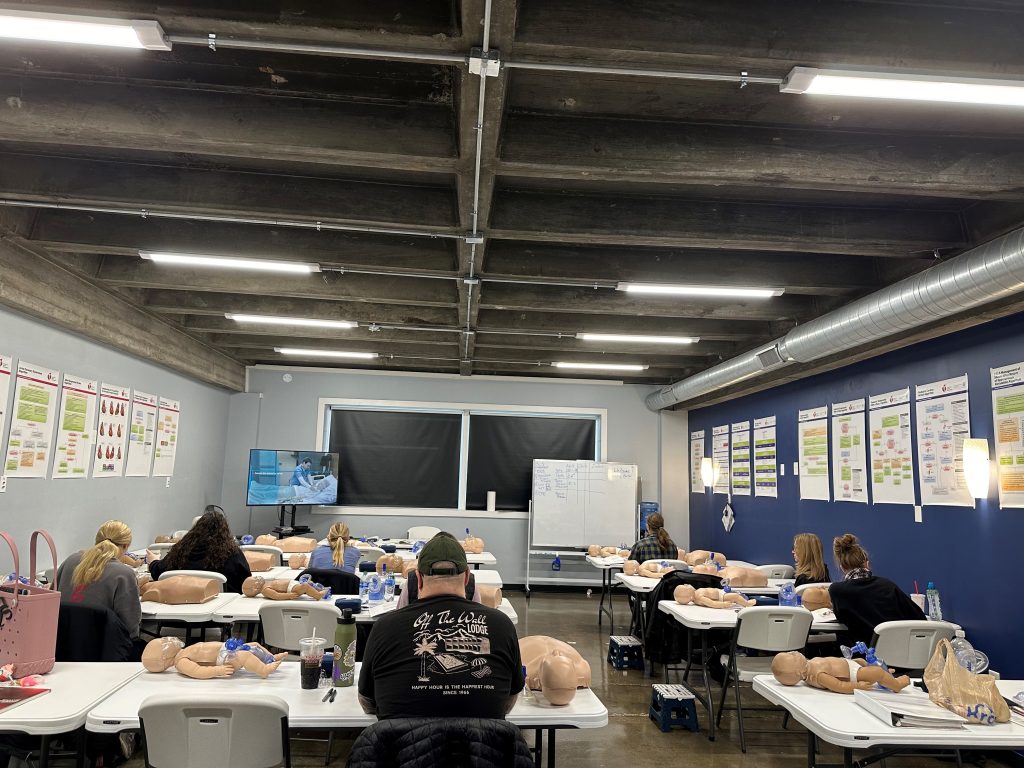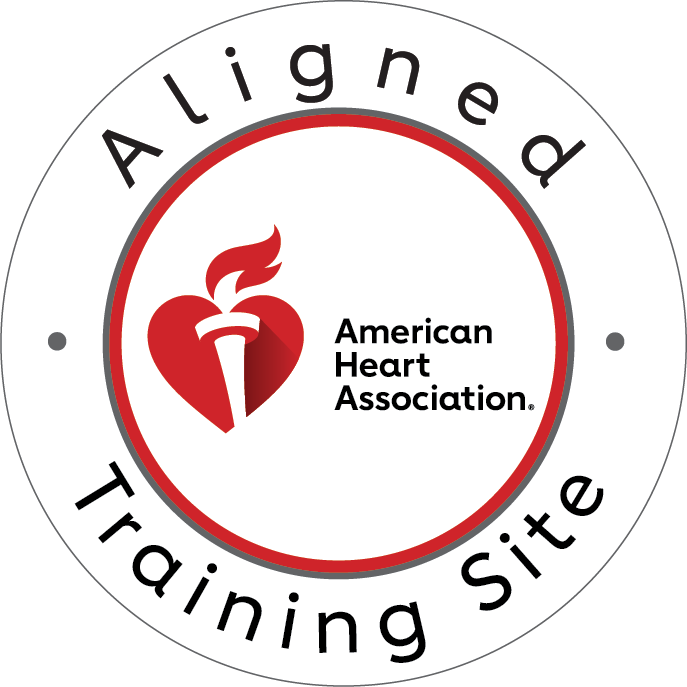Prioritizing School Safety through CPR Training
School safety has become a paramount concern for educators, parents, and communities alike. With the increasing awareness of potential emergencies, it is crucial to equip schools with the necessary skills and resources to respond effectively. One such critical skill is cardiopulmonary resuscitation (CPR), a life-saving technique that can make a significant difference in the event of sudden cardiac arrest or other medical emergencies.
Sudden cardiac arrest is a leading cause of death among students and staff in educational settings. According to the American Heart Association (AHA), each year, nearly 7,000 children suffer an out-of-hospital cardiac arrest. Without immediate CPR, the chances of survival decrease by 7-10% for every minute that passes. This sobering statistic underscores the urgent need for schools to have trained personnel capable of administering CPR until emergency medical services arrive.
CPR is not only essential for cardiac emergencies but also invaluable in addressing various medical situations that may arise in a school environment, such as choking, drowning, or other breathing difficulties. By learning CPR, school staff and faculty members can be better prepared to respond swiftly and effectively, potentially saving lives and minimizing the impact of these critical incidents.
The Need for CPR Training in Schools
While the importance of CPR training is widely recognized, many schools still lack adequate preparedness. According to a recent study, only a fraction of schools have staff members trained in CPR and access to automated external defibrillators (AEDs). This gap in emergency preparedness puts students and staff at risk, as timely CPR can significantly increase the chances of survival in cardiac arrest cases.
Furthermore, the study revealed that in schools where CPR training was provided, the survival rates for cardiac arrest victims were significantly higher compared to those without trained personnel. This stark contrast highlights the critical role that CPR training plays in ensuring the safety and well-being of the school community.
In addition to cardiac emergencies, CPR training equips school staff and faculty with the knowledge and skills to handle a wide range of medical situations effectively. From sports injuries to accidents on the playground, having trained individuals on-site can make a substantial difference in the outcome and recovery of those involved.
Benefits of AHA CPR Training
To address the need for comprehensive CPR training in schools, many institutions are turning to the American Heart Association (AHA) for their certified courses. AHA CPR training offers numerous benefits that can significantly enhance school safety and preparedness.
One of the primary advantages of AHA CPR training is the expertise and credibility of its certified instructors. These instructors undergo rigorous training and certification processes to ensure they possess the necessary knowledge and skills to teach CPR effectively. With their guidance, participants can learn proper techniques, understand the latest guidelines, and gain confidence in their ability to respond during an emergency.
Another key benefit of AHA CPR training is the hands-on approach and the use of state-of-the-art manikins and automated external defibrillators (AEDs). This practical experience allows participants to practice lifesaving skills in a controlled environment, better preparing them for real-life situations. The realistic scenarios and immediate feedback from instructors reinforce proper techniques and help participants overcome any hesitancy or fear associated with performing CPR.
Moreover, AHA CPR training courses are designed to instill confidence in participants. The instructors create a supportive and stress-free learning environment, encouraging participants to ask questions and practice until they feel comfortable with the techniques. This confidence-building aspect is crucial, as hesitation or doubt during an emergency can potentially hinder effective response and put lives at risk.
CPR Nashville: A Reliable Training Provider
For schools in the Nashville area, CPR Nashville stands out as a trusted provider of AHA CPR training. This locally owned and operated training site is dedicated to offering high-quality, comprehensive courses that meet the AHA’s rigorous standards.
CPR Nashville offers a wide range of courses, including Basic Life Support (BLS) for Healthcare Providers, Advanced Cardiovascular Life Support (ACLS), Pediatric Advanced Life Support (PALS), as well as CPR and First Aid courses tailored to the needs of educational institutions. With a team of experienced and certified instructors, CPR Nashville ensures that participants receive personalized attention and hands-on training to master lifesaving techniques effectively.
One of the key advantages of choosing CPR Nashville for school CPR training is its commitment to creating a stress-free and interactive learning environment. The instructors understand the importance of making participants feel comfortable and engaged throughout the training process. By fostering a positive and supportive atmosphere, participants are better able to retain the information and develop the necessary skills.
Implementing AHA CPR Training in Schools
Recognizing the significance of CPR training, many schools are proactively taking steps to implement AHA-certified courses for their staff and faculty. However, the implementation process requires careful planning and consideration to ensure maximum effectiveness and participation.
The first step in implementing AHA CPR training is to assess the specific needs of the school community. This includes identifying the key personnel who should receive training, such as teachers, coaches, administrative staff, and any designated emergency response team members. By understanding the unique requirements and potential scenarios within the school environment, appropriate training programs can be tailored to address those needs effectively.
Scheduling and logistical considerations are also crucial in the implementation process. Schools need to find a balance between providing comprehensive training and minimizing disruptions to regular operations. Working with a reputable provider like CPR Nashville can help streamline the scheduling process, ensuring that training sessions are conveniently arranged and efficiently conducted.
Additionally, schools must actively encourage participation and buy-in from the entire school community. This might involve organizing awareness campaigns, highlighting the importance of CPR training, and incentivizing staff members to attend. By fostering a culture of safety and preparedness, schools can increase the likelihood of successful implementation and sustained commitment to CPR training.
Creating a Culture of Safety
Implementing AHA CPR training is not a one-time event; it should be part of a broader effort to create a culture of safety within the school environment. By fostering an environment of preparedness, schools can ensure that the knowledge and skills acquired through CPR training are effectively integrated into their overall safety protocols.
One key aspect of creating this culture is promoting regular refresher courses and drills. CPR skills can deteriorate over time, and it is essential to provide opportunities for staff and faculty to reinforce their knowledge and maintain their proficiency. Conducting periodic drills and simulations can also help identify areas for improvement and reinforce the importance of swift and effective response during emergencies.
Moreover, schools should actively involve the entire community in their safety initiatives. Engaging parents, local emergency responders, and community organizations can not only raise awareness but also provide valuable resources and support. By working together, schools can create a comprehensive safety net that extends beyond the school premises and ensures a coordinated response in the event of an emergency.
Success Stories and Testimonials
The impact of AHA CPR training in schools is best exemplified through real-life success stories and testimonials from those who have experienced its benefits firsthand. These accounts serve as powerful reminders of the lifesaving potential of CPR and the importance of being prepared.
In recent years, numerous schools across the country have implemented AHA CPR training, and the results have been remarkable. From coaches successfully resuscitating students who suffered cardiac arrests during athletic events to teachers providing immediate aid to choking victims, these incidents highlight the invaluable role that trained personnel play in ensuring the safety and well-being of the school community.
Testimonials from participants and administrators further reinforce the value of AHA CPR training. Many express a newfound sense of confidence and preparedness, knowing that they possess the skills to potentially save a life in an emergency. Administrators, in turn, commend the training for enhancing overall school safety and contributing to a more secure and responsive environment for students and staff alike.
Conclusion
In an era where school safety is of paramount importance, equipping staff and faculty members with life-saving skills like CPR is not just a necessity; it’s a moral imperative. By implementing the American Heart Association (AHA) CPR certification, schools can take a proactive step towards creating a safer and more prepared environment for their students and staff.
The statistics speak for themselves – sudden cardiac arrest incidents in schools are a tragic reality, and timely CPR can mean the difference between life and death. AHA CPR certification provides comprehensive, hands-on instruction from certified professionals, ensuring that participants gain the knowledge and confidence to respond effectively in emergencies.
Moreover, the benefits of AHA CPR certification extend beyond just cardiac emergencies. It empowers school personnel to handle a wide range of medical situations, from choking to drowning, and to provide immediate aid until professional help arrives. This preparedness not only enhances the overall safety of the school environment but also fosters a sense of security and peace of mind for parents, students, and staff alike.
Schools in Nashville are fortunate to have CPR Nashville, a trusted provider of AHA CPR certification courses. With its convenient scheduling, stress-free environment, and interactive learning approach, CPR Nashville makes it easy for educational institutions in the area to prioritize safety by obtaining CPR certification.
The success stories and testimonials from schools that have already implemented AHA CPR certification serve as a powerful testament to the positive impact it can have on a community. They remind us that being prepared is not just a precaution; it’s a responsibility we owe to the children entrusted to our care.
As educators, administrators, and community members, it is our collective duty to prioritize school safety and take proactive measures to ensure the well-being of our students and staff. Investing in AHA CPR certification in Nashville is an investment in the future – a future where no life is lost due to a lack of preparedness, and where every school is equipped to respond swiftly and effectively in the face of emergencies.
Take action today and enroll your school in CPR certification Nashville through CPR Nashville. Contact them at [contact information] to learn more about their comprehensive training programs and schedule your life-saving CPR certification courses. Together, we can boost school safety and create a safer, more resilient learning environment for generations to come.





